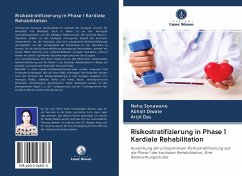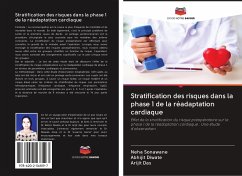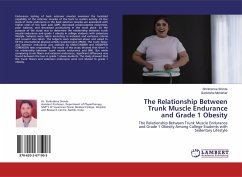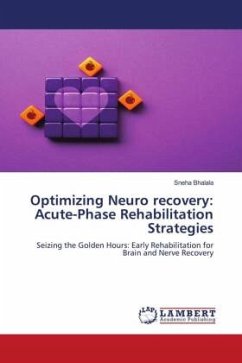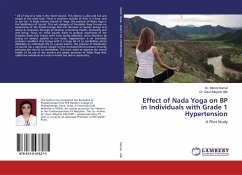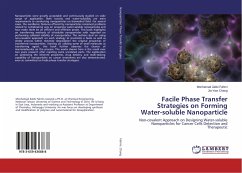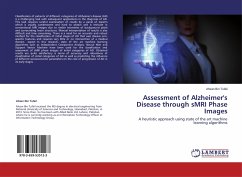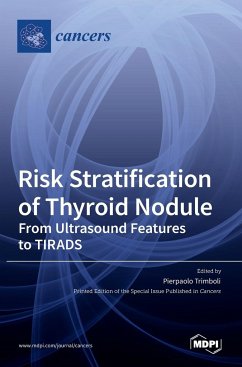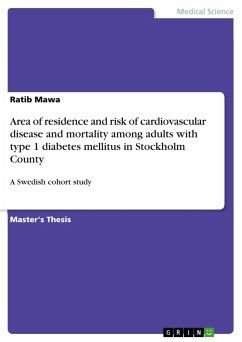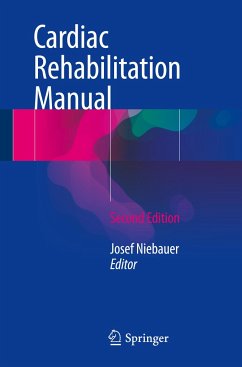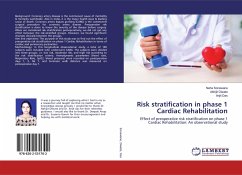
Risk stratification in phase 1 Cardiac Rehabilitation
Effect of preoperative risk stratification on phase 1 Cardiac Rehabilitation: An observational study
Versandkostenfrei!
Versandfertig in 6-10 Tagen
36,99 €
inkl. MwSt.

PAYBACK Punkte
18 °P sammeln!
Background: Coronary artery disease is the commonest cause of morbidity & mortality worldwide. Also in India, it is the major health issue & leading cause of death. Coronary artery bypass grafting (CABG) is the commonest surgical procedure for coronary artery disease. Preoperative risk stratification is done to know the severity of the disease before surgery. When we considered risk stratification postoperatively, we did not get any effect between the risk-stratified groups. However, we found significant changes clinically between the groups. Aim and objectives: The purpose of this study was t...
Background: Coronary artery disease is the commonest cause of morbidity & mortality worldwide. Also in India, it is the major health issue & leading cause of death. Coronary artery bypass grafting (CABG) is the commonest surgical procedure for coronary artery disease. Preoperative risk stratification is done to know the severity of the disease before surgery. When we considered risk stratification postoperatively, we did not get any effect between the risk-stratified groups. However, we found significant changes clinically between the groups. Aim and objectives: The purpose of this study was to find out the effect of preoperative risk stratification on phase 1 Cardiac Rehabilitation in terms of cardiac and pulmonary parameters.Methodology: In this longitudinal observational study, a total of 109 subjects were included who underwent CABG. The subjects were divided into three groups, i.e. low risk, moderate risk, and high risk according to the risk stratification criteria. Hemodynamic parameters (Heart rate, Respiratory Rate, SpO2, blood pressure) were recorded on postoperative days 1, 3, 5& 7, and 6-minute walk distance was measured on postoperative day 7.





